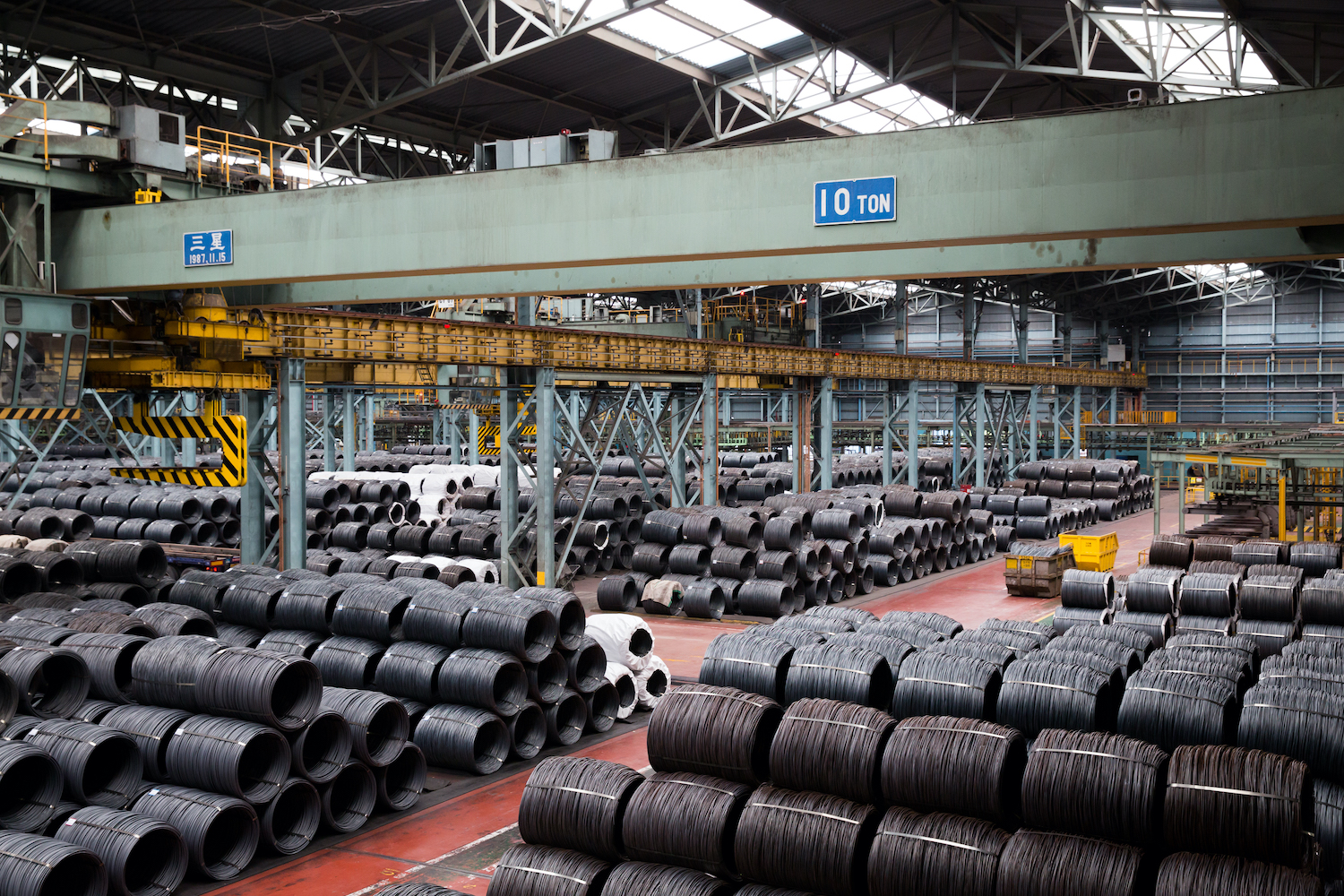Russian major steel companies say sanctions the West has imposed on Russia over its invasion of Ukraine will not have much immediate effect, emphasizing their strong financial positions, low debt levels and experiences of functioning under earlier sanctions but analysts fear infrastructure-heavy projects and some environmental, social and governance criteria plans might be shelved.
“We do not see any threats from sanctions in our regard, our business operates as before and maintains financial stability,” a representative for steelmaker MMK told S&P Global Platts Feb. 25.
Russian mining and steel company Severstal said Feb. 25 it was closely monitoring the situation and any possible implications for its business; adding it was to operate as usual.
The company maintains a strong financial position and a low level of debt — this came to 0.23x net debt-to-EBITDA as of the end of 2021, it said in a note, adding its business model ensures high operational sustainability, which is reflected in its position as one of the lowest cost public steel companies in the world.
Asked what could ensure business continuity given the current geopolitical tensions, senior management of another major miner and steelmaker Evraz said during the call with analysts on Feb. 25 that the company’s cash and cash equivalents on the balance sheet were slightly in excess of $1 billion towards year-end 2021 and are currently higher thanks to the strong months in January and February. The majority of this is held in Russian banks.
Evraz was not clear about its exposure to banks under sanctions, but CEO Alexey Ivanov said that since 2014, the company have learnt how to work in the sanction framework; it is well prepared for this round of sanctions and has strong compliance service to monitor its transactions in the circumstances.
Evraz is proceeding with its business as usual, although it is reviewing inventory positions,and may increase stocks of spare parts, according to Ivanov.
“We believe the sanctions will not have significant effect on our company,” CEO said. “At the moment it is premature to say that we see any consequences. Sanctions were announced very recently, we need more time to analyze and find the way forward.”
Infrastructure demanding projects and ESG
Evraz’s $5 billion EBITDA in 2021 was twice as much as its pre-tax earnings in 2020. Its net profit increased by 3.5 times on the year to $3 billion and net debt to EBITDA went down to 0.5x as at 2021 year-end. Severstal a week earlier posted record high earnings too.
The companies’ capex plans for this year — $1.1 billion for Evraz and $1.6 billion for Severstal – represent 40% of the companies’ profits and so can be fully financed from their own proceeds in the face of sanctions.
Yet the announced sanctions on a few banks, including some major ones may undermine long-term development plans within the country’s mining and metals industry as tapping into greenfields – especially in remote regions lacking basic infrastructure and especially for the most capital intensive for extraction resources like copper or iron ore — with limited finance options is becoming more difficult, according to an industry insider who wished to be unnamed.
Ruble loans have always been expensive, while sanctions against several large banks have now effectively scrapped the possibility to obtain long-term finance in foreign currency. Short-term effects on the mining industry are probably going to be negligible, but the long-term price of it might be a few unrealized or mothballed projects — those that require vast finance to build not only mining and processing plants, but a lot of infrastructure around them like power transmission, roads, railroads and ports, according to the source.
In the mid to long term, the company’s ESG agenda, especially its environment component, may be the area most sensitive to sanctions for the Russian steel industry, according to a Moscow-based analyst, who thinks that in the worst case Russian companies may be prompted to revisit their capital intensive ESG-driven commitments or shift their focus from the environment to the social component of the triad.
“Motivation to invest in ESG, especially in direct-reduced and hot-briquetted iron and hydrogen projects might somewhat deflate if Russian steel is going to be sidelined in certain markets,” the analyst said. “This motivation has largely been reasoned by political considerations, as economically DRI-based steelmaking cannot compete with classical blast furnace-basic oxygen furnace route.
“BF-BOF makes a steelmaker devoid of any iron ore issues as any iron ore grade would do to produce decent quality pig iron,” the analyst said. “With DRI-based electric arc furnace route, mills are hinged on chemistry: it takes particular ore characteristics to get decent steel quality, and this is an acute disadvantage of the much-touted DRI-EAF route.”
That said, the top management of Evraz has just said the company is researching options to produce DRI using iron ore from Kachkanar — the vanadium-rich iron ore mining and beneficiation plant in the Sverdlovsk region, and from Timir in Russia’s Far Eastern republic of Sakha (Yakutia).
If approved, the respective DRI project will become a part of the company’s decarbonization strategy.
Ivanov said Evraz is finalizing its long-term decarbonization roadmap, which it aims to present by this year end. This has already included the intermediary target of reducing the group’s CO2 emissions by 20% by 2030, something the company aims to achieve through energy efficiency programs, green energy purchases and more initiatives to substitute coke in blast furnaces.
A week ago, Severstal CFO Alexey Kulichenko told analysts the company will be considering developing HBI production after the completion of its current 2019-23 strategic cycle.
— Ekaterina Bouckley






